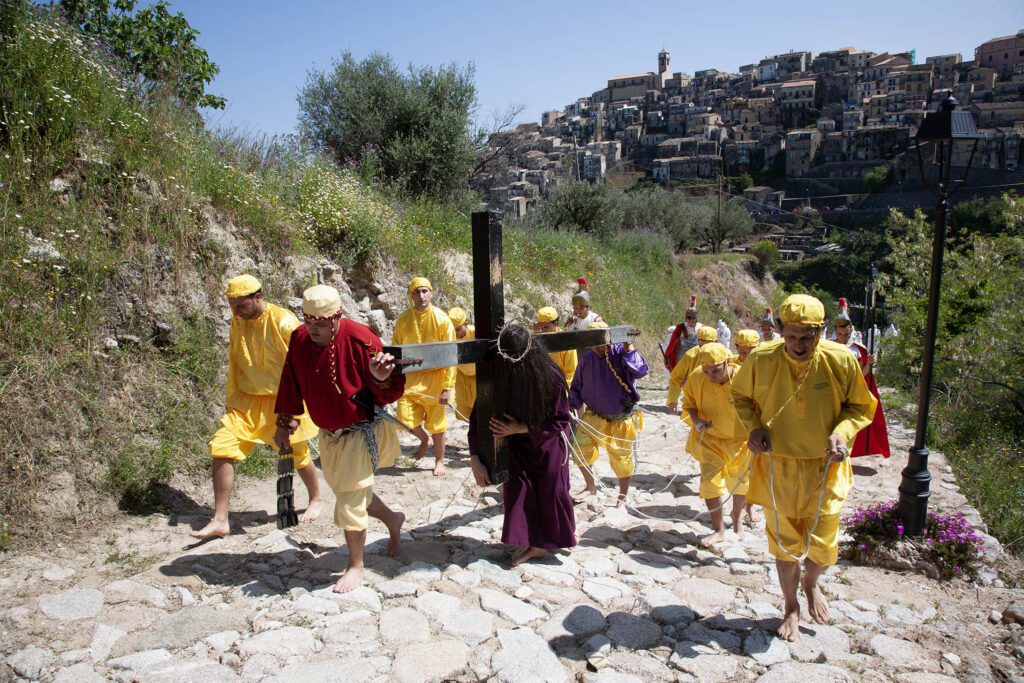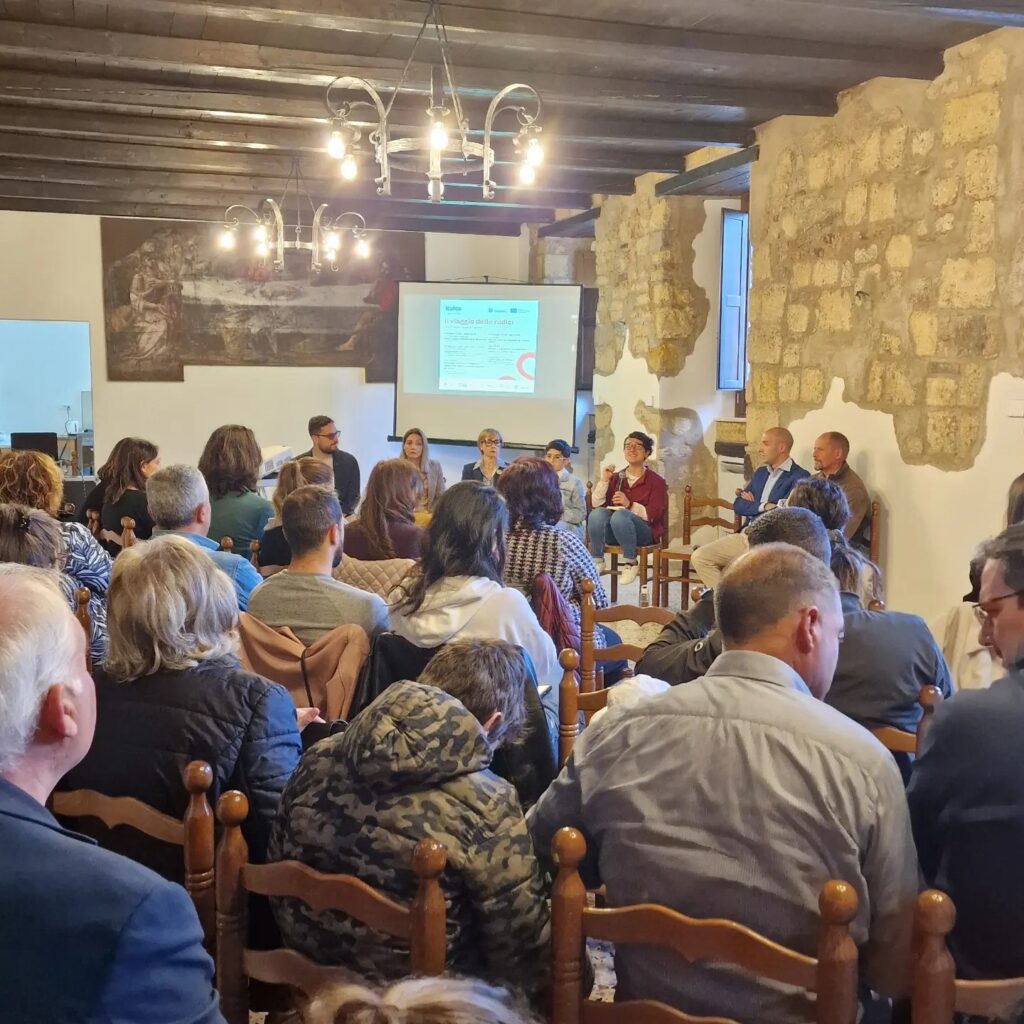Calabria during spring offers an enchanting spectacle for the senses, with nature awakening in all its beauty. The season not only offers breathtaking landscapes, but also traditional festivals, especially the Easter celebrations that are still lived with great intensity. The rites of Holy Week in Calabria, which mix the sacred and the profane, will make travelers of the roots relive an immersive experience in the most intimate aspects of Calabrian spirituality.
From the north to the south of the region, centuries-old traditions are handed down that evoke ancient customs and traditions.
Appointments not to be missed
Not to be missed are the Greek-Byzantine rites of the Arbëreshë (Pashkët) Easter, one of the most anticipated moments of the year.
Visiting these towns in Calabria, during Holy Week, means witnessing one of the most significant moments for the community, which celebrates this event with a mixture of religious devotion and contagious joy that culminates with the traditional “Vallje”, the characteristic dances of victory and liberation in which the dancers are clearly recognizable by the traditional brightly colored clothes, embellished with eye-catching jewels.
Solemn processions parade through the narrow streets of the village, accompanied by sacred songs that narrate the resistance against the Turks. On Easter Eve, Arbëreshë families gather around tables laden with local delicacies. The conviviality lasts until late at night, between stories of the elderly and traditional dances involving young and old.
In the Greek area of Bova, on the other hand, you can witness the ancestral rite of the Persephoni, which represents a combination of the sacred and the profane, with a procession that mixes myth and Christian rite. During Palm Sunday, a procession carries through the streets of the village the statues of the Persephoni (also known as Pupazze) which symbolize the wealth of the earth. It is a procession of female anthropomorphic figures made of intertwined olive leaves, applied on supports of wild reeds and decorated with colored ribbons, lace, mimosa branches, flowers, fruit and first fruits of the season including olives, broad beans, bergamot, mandarins. It is the task of the farmers to implement with skill and patience the complex process of weaving the leaves and assembling the plant elements. This laborious process also includes differentiating between mothers and daughters based on the size of the figures. The puppets represent a link with the Greek myth of Persephone and Demeter, evoking ancient pre-Christian rites and myths of Magna Graecia origin. Closely connected to the cycle of the seasons, over time, after the Byzantine influence and Latinization, this tradition has adapted to the Christian liturgy of Palm Sunday. The puppets thus become a unique symbol that blends pagan and Christian elements, testifying to a rich history of cultural and spiritual continuity.
Among the most intense rites of Easter in Calabria are those of the vattienti, beating or flagellating, which take place in Nocera Terinese and Verbicaro. These rites, although bloody, preserve a veneration rooted in the past and constitute essential elements of the local identity and cultural heritage.
Numerous Calabrian villages, such as Polistena, Rosarno, Soriano Calabro, Briatico, Badolato, celebrate in addition to the evocative processions of Good Friday, the “Affruntata”, an evocative event that traces the encounter between the Risen Christ and the Madonna and which is held on Easter Sunday. In Briatico, in addition to the Affruntata, there is the Infiorata di Potenzoni, an occasion that attracts tourists and onlookers to admire works of art made with flowers, sands, wood and natural elements.
Culinary delights:
There are many foods linked to the Easter tradition, the unmistakable Easter Jova of the oriental rite, or the red-colored Easter eggs of the Arbëreshë people; the cuzzupe, sweets with a braided shape with hard-boiled eggs and colored sprinkles as decoration, known in other areas of Calabria as sgute, cululi or cudduraci; the Nepitelle, ravioli stuffed with black pudding, cooked wine, raisins, figs and dried fruit.
In conclusion, attending the celebrations of Holy Week will bring back the traveler of the roots to experience the ancient rites lived by their ancestors that have been repeated for centuries according to tradition, intact in their ancient charm.



